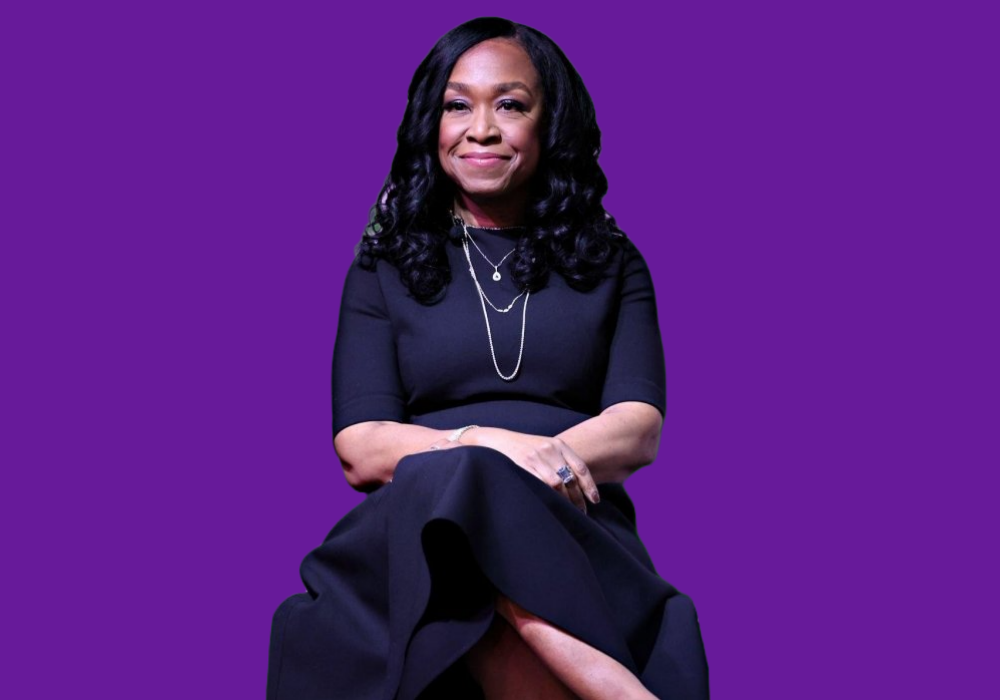Industry Insider: Shonda Rhimes and Her $450 Deal With Netflix
SHONDA RHIMES - CINDY ORD
Shonda Rhimes is a legendary name in television, as she is the creator of several extremely successful series that are renowned around the globe. After a long partnership with ABC, in 2017 she signed a multi-year deal with Netflix that has been renewed and expanded in 2021, rising from an initial valuation of $150 million to the $450 million it is today.
In 2017, Netflix had been producing original content for four years, and most of the streaming platforms that crowd the industry today did not exist. For example, Disney (which did not have Disney+ yet, as the platform was launched in November 2019) still had many original productions distributed by Netflix, and the licensing agreements were about to expire. In 2017, Shonda Rhimes signed an exclusive multi-year deal with the streaming service for her to produce content, valued at $150 million. This followed the historic partnership with ABC Studios, for which Rhimes created some of the most popular series in television history, such as Grey’s Anatomy (2005-present), currently renewed for its twentieth season, How To Get Away With Murder (2014-2020), Scandal (2012-2018), and two spin-offs for Grey’s Anatomy: Station 19 (2018-present), and Private Practice (2007-2013). In addition to the $150 million, Rhimes also scored a percentage of the backend points of the shows she creates on Netflix. This deal was key in the evolution of streaming, as it signed the passage from bidding for licensing the best shows to bidding for the talent that creates them.
The first production in collaboration with Netflix was Bridgerton, which debuted in December 2020. The first season has a total of 625.49 million hours watched in its first 28 days, which ranked it number one at the time, followed by the third season of Stranger Things with 582.1 million hours. Netflix’s famous “28-day rule” is still the most important metric to establish the success or failure of a show – and consequently its potential cancellation. It is comprised of the number of hours watched (which is then used to rank the shows and movies), how many people have completed watching the whole season, and how many new subscribers have watched it (to understand which shows attract new subscribers). In addition to this rule, another metric that is closely observed is if subscribers watch the entirety of an episode or if they leave it halfway through.
After Bridgerton’s first season’s success, in 2021, Rhimes stated that:
“When Ted [Sarandos] and I decided to break the traditional network TV business model to move Shondaland to Netflix, we were both taking a leap into the unknown. Today, Shondaland at Netflix is creatively thriving, profitable as an asset and engaging audiences around the world with stories that fearlessly challenge viewers and keep them highly entertained all at once.”
Later on, the limited series Inventing Anna was a huge success and propelled the con-artist and influencer that is the subject of the show to a new level of stardom. From its release on February 11, 2022, the series topped Nielsen Weekly Streaming Chart for weeks, and in its first full week it accumulated almost 196 million hours of viewership (as well as 511 million hours in its first 28 days), thus setting the record for Netflix for an English-language series. The record was shattered in March 2022 only by the second season of Bridgerton, which was viewed for a total of 251.7 million hours in its first week on the platform. Bridgerton has been renewed for another three seasons, and its miniseries prequel Queen Charlotte: A Bridgerton Story, which debuted on May 4th, 2023, has accumulated 432.2 million hours in its first four weeks of streaming.
Netflix expanded the original deal with Rhimes and Shondaland to include merchandising and branding, among which gaming and live events (such as 2023’s “The Queen’s Ball: A Bridgerton Experience” that debuted in many cities across North America) for a valuation of $450 million. This reflects the impact of ancillary markets in Netflix’s business model: as more streaming services enter the market, investing in areas that are non-competitive but rather additive to revenue is the best strategy, as it is reflected in both the monetary increase in the deal with Rhimes’, but also its expansion to live-events and merchandising instead of a sole focus on content production.
Part of the new deal is also the financing of Shondaland’s diversity program DEIA (Diversity, Equity, Inclusion, Accessibility), with the goal to increase the number of women, People Of Color, LGBTQ+ and other underrepresented groups working in the entertainment industry both in the US and the UK.
During an interview on the podcast Recode Decode, Shonda Rhimes commented on why she decided to take the deal with Netflix:
“I love the idea that you can put out something that can be all over the world in an instant instead of waiting for platform after platform after platform. I also love the creative freedom that is available there: there is no restrictions, […] it’s an open road.”
No restrictions in terms of episodes’ time constraints, content, and creativity. Netflix promised Shonda Rhimes what any artist and creator really wants: the freedom to do anything they want.


